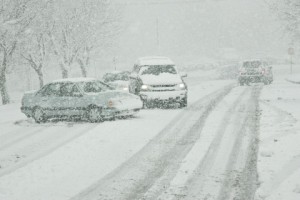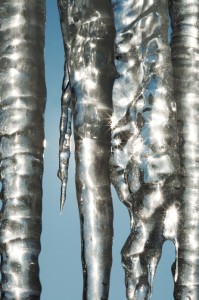Posted on 9/2/2014
You may only think about your vehicle’s air conditioning system in the summer time when you need it the most, but here are a few pieces of information that will help keep you cool when summer rolls around: Your air conditioning system comes on when you turn on your defrost. This means you are using FREON. You should have your air conditioning checked in the winter as well as summer. In Michigan, they do more air conditioning services in the winter than in the summer. One sign that tells you it is time to check your A/C is when your windows do not defrost well. Running with low Freon can damage your air conditioning system. One of the reasons you can be low on Freon when summer rolls around is that you have been using it throughout the winter months, every time the defrost is on! Bring your vehicle in to Sallas Auto Repair today and let us inspect your air conditioning. You’ll be glad you did when those sunny days return
Posted on 9/2/2014
Do you hear loud noises under the hood when you turn on your air conditioner? Do you only get cool air sporadically? If so, it is time to get your air conditioner checked. It’s real easy to take your car’s air conditioner for granted. Just push the right buttons and out comes cool, dry, clean air. But your air conditioning system needs attention from time to time to help it keep its cool. When most people hear the words “air conditioning problems”, it sends a shiver up their spine. That is because the air conditioning system is fairly complex. It has a lot of parts and when it’s broken, it’s expensive to repair. What things can we do to prevent air conditioning breakdowns? A common cause of air conditioning failure is leaks. Water and air can leak into the system. The system doesn’t work as well with air in it. And water can cause rust that leads to damage of the A/C components. Also, refrigerant, the stuff that makes the air cold, can leak out, reducing the efficiency of the system ... read more
Posted on 9/2/2014

It may seem like summer was just here and already we’re saying hello to Christmas and winter weather. And with snow and ice brings driving in snow and ice and that can be an unnerving, and potentially dangerous, experience. But knowing how to handle a car on icy roads can keep you and your family safe on the way to grandma’s house. First of all keeping your car in good shape is critical to safe driving in winter. Good tires with proper pressure, relatively new windshield wiper blades and a full washer reservoir will help when the snow, ice and slush start to fall. An emergency kit is also a good idea if you plan to drive a long distance on the highway. Clean your car before you head out. Sweep off snow and scrape ice from the entire surface of your car before you drive away. Flying ice and snow can be hazardous for other drivers around you. And now you’re driving and condi ... read more
Posted on 9/2/2014
Even though we haven’t seen much snow this winter we’ve seen some cold temperatures. So it’s important that the antifreeze in your car be mixed correctly. So who better to ask than The Car Talk guys to get the absolute gospel about all things antifreeze. For most areas you’ll need a 50/50 mix of coolant to water. Don’t be tempted to try 100% because it will freeze, it won’t transfer heat away from and may even harm your engine. Here’s a little diagram to help: Protection Freeze-up Protection Boilover Protection Corrosion Protection Minimum 50% anti-freeze 50% Water -34ºF +265ºF Exceeds all ASTM and SAE standards for corrosion protection Maximum 70% anti-freeze 30% Water -84ºF +276ºF If you’re unsure about the existing mixture of coolant there’s a handy little device that you can buy from an auto parts store. It sucks up a little bit of coolant from the radiator o ... read more
Posted on 9/2/2014

On January 23, 1971 the town of Prospect Creek recorded Alaska’s and the United States’ coldest temperature of 79.8 below zero. So far it’s the lowest recorded temperature anywhere in the country. Which means things were probably running pretty slow from the faucets to the citizens. But what about the cars? Granted back then the quality of engines and the quality of coolant wasn’t up to modern standards but suppose that temperature was recorded today. Would the gas in your car freeze? Here’s some science for you from the Department of Physics at the University of Illinois at Urbana-Champaign: Gasoline doesn’t really have just one freezing temperature, and in fact, gasoline isn’t made out of just one kind of molecule, but many different hydrocarbons. If you get it cold enough, it will get pretty hard. Freezing is a phase cha ... read more